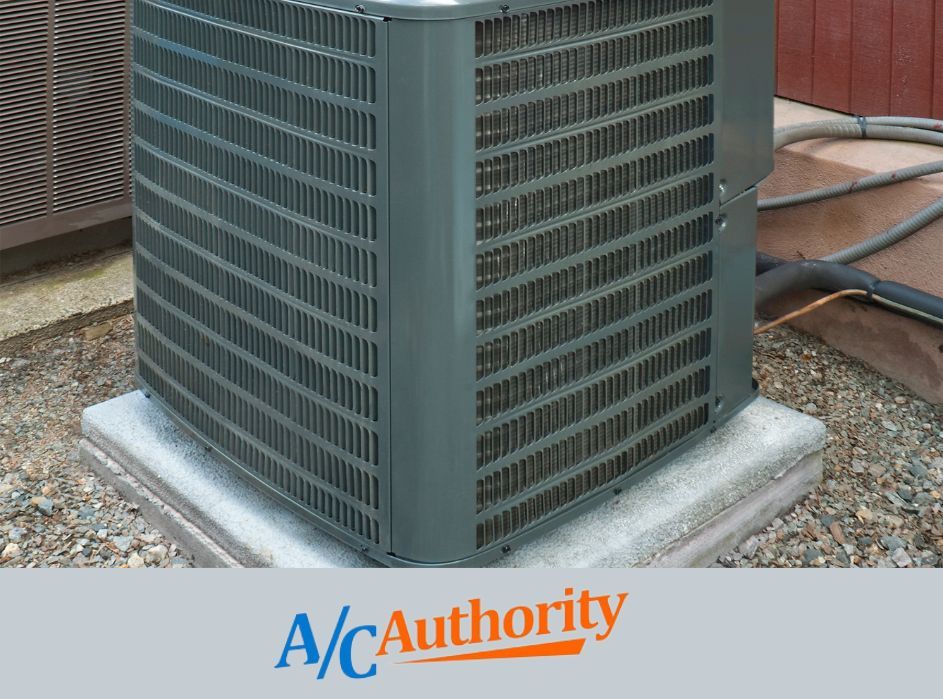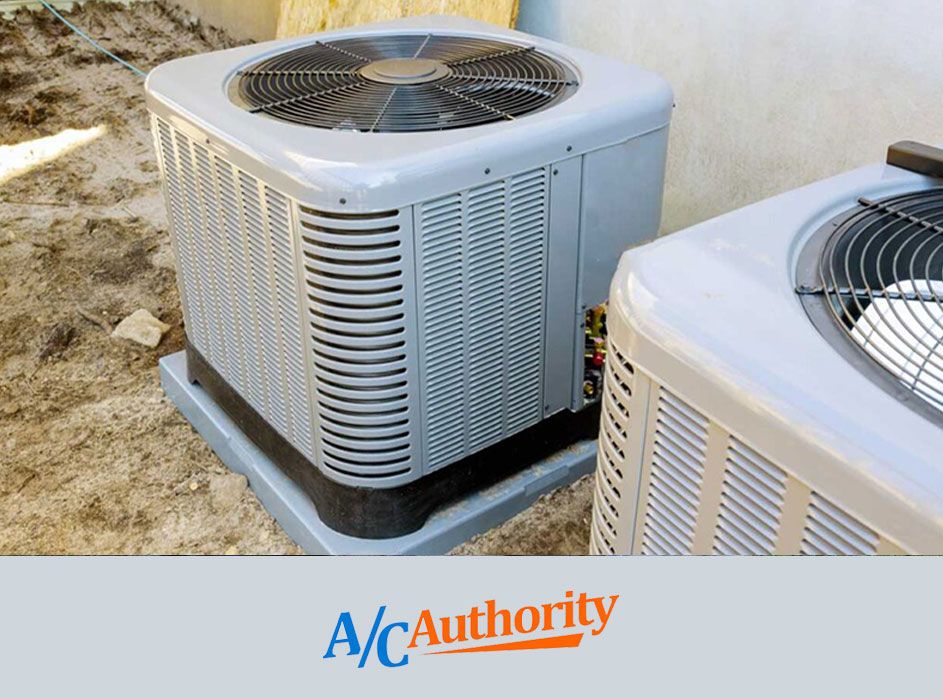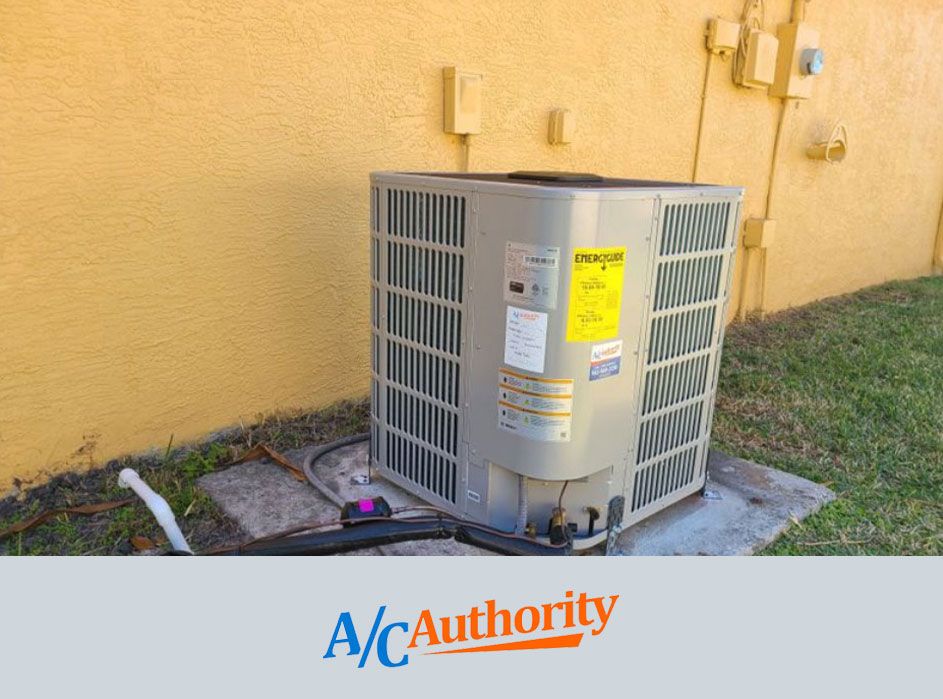What is the Average Cost of AC Installation Service in Palm City, FL?
The average cost of AC installation in Palm City, FL, ranges from $4,500 to $12,000, depending on factors like system type, SEER rating, and the complexity of the job. Choosing a qualified installer like AC Authority ensures your new air conditioner delivers long-term performance and savings.
What Influences the Cost of AC Installation?
Understanding what drives pricing helps homeowners make informed decisions. The cost of AC installation can vary widely based on the specifics of your home and your cooling preferences.
Key Pricing Factors:
- System Type: Central air, ductless mini-splits, and heat pumps each come with different price points.
- SEER Rating: A Higher Seasonal Energy Efficiency Ratio means more upfront costs but better long-term savings.
- Tonnage: Larger homes need higher-capacity systems, which cost more.
- Ductwork Condition: Replacing or repairing ductwork increases labor and materials.
- Installation Access: Crawl spaces or attics may raise installation complexity.
- Permits and Local Codes: Palm City HVAC installations must meet Florida building codes, sometimes requiring inspection and permitting fees.
AC Authority provides upfront estimates and honest guidance to help you choose the right system within your budget.
Central Air vs. Ductless Systems: Which One Fits Your Home?
There’s no one-size-fits-all approach to AC installation. Palm City homeowners must weigh the pros and cons of different cooling systems before investing.
Central Air Conditioning:
- Ideal for homes with existing ductwork.
- Offers even cooling throughout large homes.
- Typical cost: $5,500-$10,000
Ductless Mini-Splits:
- Great for homes without ductwork or for room-specific cooling.
- Energy-efficient and flexible to install.
- Typical cost: $4,000-$8,000
Heat Pump Systems:
- Functions as both a heater and an air conditioner.
- Ideal for Florida’s mild winters.
- Typical cost: $6,000-$12,000
AC Authority helps homeowners compare these systems based on home size, insulation quality, and personal comfort preferences.
Why AC Installation Service in Palm City Requires Local Expertise
Installing an AC unit in Florida isn’t the same as in other states. The humid coastal climate in Palm City demands systems that can handle both high heat and intense moisture. That’s why choosing a local, trusted company like AC Authority is essential.
Regional Challenges We Solve:
- High Humidity: Systems must include proper dehumidification settings to maintain comfort.
- Salt Air Exposure: Coastal air can corrode components faster; AC Authority installs rust-resistant systems.
- Storm-Proofing: Outdoor units should be secured against hurricane-force winds.
With years of experience in Martin County and the surrounding areas, AC Authority understands how to install systems that stand up to Palm City’s unique environmental conditions.
How to Plan for a Smooth AC Installation
Whether replacing an old system or installing a new one, proper planning reduces hassle and ensures better results. AC Authority walks you through every step of the process to eliminate confusion.
Key Prep Steps:
- Book an In-Home Evaluation: We assess square footage, insulation, existing ductwork, and vent placement.
- Choose the Right Unit: We match system size and type to your home layout and usage needs.
- Schedule Your Install: Most jobs take one day. Complex installations may take two.
- Understand Your Warranty: We explain parts and labor coverage so you’re never surprised.
Our certified HVAC professionals make sure your system is installed to manufacturer standards, ensuring warranty eligibility and peak performance.
The True Value of Professional AC Installation
Hiring a licensed professional does more than meet code: it protects your investment. At AC Authority, we take a systems-based approach, ensuring every part of your HVAC system works harmoniously.
Benefits of Professional AC Installation:
- Energy Savings: Correct sizing and placement reduce runtime and cut energy costs.
- Longevity: Poor installation shortens equipment lifespan by 30% or more.
- Compliance: We handle local permits and inspections.
- Better Indoor Air Quality: Proper sealing, filtration, and ventilation matter for your family’s health.
AC Authority doesn’t just install AC systems. We install reliability, efficiency, and peace of mind.
Cost-Saving Tips Without Cutting Corners
Homeowners are always looking to save money on big-ticket installations, but cutting corners can cost more in the long run. Instead, look for smart ways to stay within budget while still hiring professionals.
Smart Cost Strategies:
- Off-Season Installations: Spring and fall may come with seasonal promotions.
- Rebates & Tax Credits: Florida utilities often offer energy-efficiency incentives.
- Financing Plans: AC Authority offers flexible payment options to ease upfront costs.
- Routine Maintenance Plans: Preventative care protects your investment long-term.
Choosing AC Authority means getting honest advice and budget-friendly options without sacrificing quality.
How Long Does a New AC Last?
A new air conditioning system is a long-term investment, and understanding its expected lifespan can help homeowners plan ahead. With proper care, a professionally installed system in Palm City, FL, can last 12 to 20 years.
What Affects Longevity?
- Installation Quality: Improper installation can cut a system’s life short by several years. AC Authority ensures every component is installed to spec.
- System Type: Central air systems tend to last longer than ductless mini-splits in high-use homes.
- Climate Conditions: Florida’s humidity, salt air, and year-round use can accelerate wear and tear.
- Routine Maintenance: Regular tune-ups, filter replacements, and coil cleanings are essential for extending system life.
AC Authority offers ongoing service plans to keep your new system running like new. We don’t just install AC; we help you protect it.
Signs It’s Time to Replace Your AC System
Not sure if you need a full AC installation or just a repair? Recognizing the signs of a failing system can help you avoid unexpected breakdowns during Palm City’s hottest months.
Common Red Flags:
- Rising Energy Bills: Older units lose efficiency. If your bill keeps climbing despite no change in usage, your system may be on its last leg.
- Uneven Cooling: Hot and cold spots in your home may indicate poor airflow, duct leaks, or system strain.
- Frequent Repairs: If you’re calling a technician more than once a year, a new system could save you money in the long run.
- Unusual Noises or Smells: Rattling, buzzing, or burning odors suggest mechanical or electrical problems.
- System Age: Most units over 12 years old are nearing the end of their useful life, especially in Florida’s demanding climate.
AC Authority offers honest inspections and will only recommend full AC installation if it’s truly the most cost-effective solution. We’re here to help you make the smartest decision for your comfort and budget.
AC Installation You Can Count On in Palm City, FL
Investing in a new air conditioning system is a major decision, but with the right team on your side, it doesn’t have to be stressful. The average cost of AC installation in Palm City, FL, sits between $4,500 and $12,000, depending on your home’s size, the system type, and other key variables. Working with AC Authority ensures a smooth process, energy-efficient results, and a cooler, more comfortable home for years to come.
Take the first step toward dependable comfort. Contact AC Authority for a free consultation and AC installation today!
Frequently Asked Questions About AC Installation
1. Can I install a new AC system using my existing thermostat?
In many cases, yes. However, smart thermostats may require system compatibility or additional wiring. AC Authority checks and configures your thermostat during installation.
2. How do I know what SEER rating I need in Palm City?
Florida’s climate demands efficient systems. AC Authority typically recommends a SEER rating of 16 or higher for optimal performance and energy savings.
3. What happens if my ductwork is old or leaky?
Faulty ductwork reduces system efficiency and increases cooling costs. AC Authority performs pressure testing to identify leaks and offers duct sealing or replacement options if needed.






